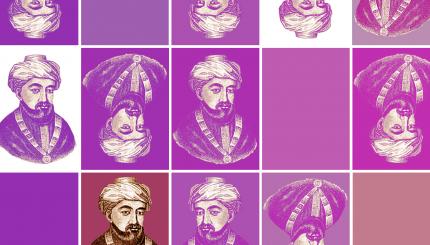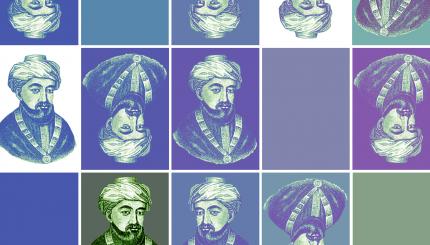Reprinted with permission of the author from Contemporary Jewish Ethics, ed. Menachem Marc Kellner (Sanhedrin Press, 1978).
Contemporary Judaism is distinguished from medieval Judaism in that it is faced with an entirely new [set of issues] and in that it presents a multiplicity of answers to that complex of problems. With respect to the subject at hand, we may say that contemporary Jewish ethics is distinguished from medieval Jewish ethics[, which was concerned primarily with internal Jewish affairs and guided by traditional assumptions about the authority of the rabbinic tradition,] in that the problems it faces are largely those it shares with the surrounding culture (e.g., the problem of relating morality and religion, and specific questions like political obedience and medical ethics). In short, Jews and Judaism have become part of the modern world and, to a significant degree, the modern world has become a factor which cannot be ignored by both Jews and Judaism.
Contemporary Jewish ethics is further distinguished from its medieval counterpart by the fact that it speaks with a divided voice. One must not ask today, “What is the Jewish position on such and such?” but rather, “What is the Orthodox, Conservative, or Reform interpretation of the Jewish position on such and such?” Although many writers persist in presenting the Jewish position on various subjects, it very often ought more correctly to be characterized as a Jewish position.
 In order to understand fully the differences between Orthodox, Conservative, and Reform Judaism [and their approaches to contemporary ethics], one ought to examine them in terms of their historical development. For our purposes, however, it should be sufficient to sketch out their basic theological differences. This can be done conveniently by examining their varying conceptions of revelation. Briefly put, Orthodoxy follows the traditional rabbinic claim that the
represents the direct, conclusive revelation of God’s will. Halakhah, which derives directly from that revelation, is the will of God. It is normative for all Jews in all places and at all times. Although Orthodoxy recognizes the fact of halakhic change, it insists that such change has come about and may come about only within the context of well-recognized halakhic mechanisms. The basic Orthodox contention with respect to the halakhah is that it is a divine, not a human, system and that as such it is not subject, in essence, to the sort of historical development which is characteristic of human institutions.
In order to understand fully the differences between Orthodox, Conservative, and Reform Judaism [and their approaches to contemporary ethics], one ought to examine them in terms of their historical development. For our purposes, however, it should be sufficient to sketch out their basic theological differences. This can be done conveniently by examining their varying conceptions of revelation. Briefly put, Orthodoxy follows the traditional rabbinic claim that the
represents the direct, conclusive revelation of God’s will. Halakhah, which derives directly from that revelation, is the will of God. It is normative for all Jews in all places and at all times. Although Orthodoxy recognizes the fact of halakhic change, it insists that such change has come about and may come about only within the context of well-recognized halakhic mechanisms. The basic Orthodox contention with respect to the halakhah is that it is a divine, not a human, system and that as such it is not subject, in essence, to the sort of historical development which is characteristic of human institutions.

Help us keep Jewish knowledge accessible to millions of people around the world.
Your donation to My Jewish Learning fuels endless journeys of Jewish discovery. With your help, My Jewish Learning can continue to provide nonstop opportunities for learning, connection and growth.
Reform Judaism, on the other hand, in both its classic and modern positions, entirely rejects the claim that the halakhah represents the revealed will of God. Revelation, it maintains, is progressive, akin to inspiration, and is ultimately concerned with ethics. This emphasis is summed up in the famous motto of early Reform, that Judaism is nothing more than ethical monotheism. While contemporary Reform thinkers have largely given up the classic Reform claim that Judaism took a quantum leap from the time of the Prophets (in whose call for social morality early Reform thinkers saw God’s revelation most clearly embodied) to the nineteenth century and the rise of Reform, it is still the case that Reform Judaism rejects the halakhah as a norm and still looks to the prophetic tradition for the “essence” of Judaism.
The Conservative position is roughly midway between that of Orthodoxy and Reform. Conservative Judaism does not view revelation as God “talking” to the Jewish people, as it were, revealing to them exactly what it is he wants them to do. Rather, Conservative Judaism maintains that the Jewish people have had what may be called “revelatory” experiences of God, to which they responded by creating the Torah. Halakhah, then, is the way in which Jews have sought to preserve their experiences of God. Although taking its source in the Jews’ experience of God, it is basically a human institution and undergoes change and historical development like all human institutions. It is normative in the conditional sense that one ought to obey the halakhah if one wants to preserve the insights and experiences of the Jewish people as a whole and of those Jews in particular who have confronted God directly in their own lives. Conservative Judaism thus sees the halakhah as the Jewish vocabulary for approaching God. It does not see the halakhah as normative in the absolute sense, however, which would imply that obedience to halakhah is explicitly demanded of every Jew by God.
These three different interpretations of revelation and halakhah give rise to different emphases within Jewish ethics. Generally speaking, Orthodox thinkers will approach questions of ethics by seeking to determine the teachings of the halakhah on the issues at hand. That is not to say that they do not recognize a super-halakhic realm of Jewish ethical teaching. Lichtenstein, for example, has shown the extent to which an Orthodox thinker can recognize such a realm. But no Orthodox thinker will admit the possibility of there being a Jewish ethical teaching which might contradict halakhah. That possibility, however, is explicitly stated by at least one important Conservative thinker, Seymour Siegel. “It is my thesis,” he writes, “that according to our interpretation of Judaism, the ethical values of our tradition should have power to judge the particulars of Jewish law. If any law in our tradition does not fulfill our ethical values, then the law should be abolished or revised.” This position would most likely be rejected by Orthodox thinkers on the grounds that it sets human beings up as judges of God’s law.
Generally speaking, at least until the 1970s, the Reform approach to ethics has been to identify Jewish ethics with prophetic teachings which, in turn, were usually interpreted in terms of contemporary liberalism. Of late, however, Reform thinkershave shown new sensitivity to the teachings of the post-biblical Jewish tradition and generally seek to ground their ethical judgments in the Jewish tradition as a whole.
Summing up, we may say that the contemporary Jewish approach to ethical problems is distinguished from the medieval approach in at least two important ways. It is no longer informed by the basic unanimity of spirit which underlay medieval Jewish ethics in all its various styles and forms. Further, and as a result of the Jew’s unprecedented level of integration into the surrounding world, Jewish ethics today faces an entirely new complex of problems. Although there are elements of continuity between medieval and modern Jewish ethics, the discontinuities are more important. This is one of the many ways in which the wrenching changes which accompanied the Jewish entry into the modern world are reflected.


